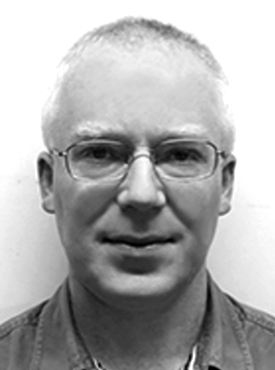Andy Vail
1.How did you get interested in statistics?
Nicola Crichton ran an undergraduate medical statistics module at the University of Exeter and Deborah Ashby came to give an ‘inspirational lecture’. It sounded a lot more interesting than the obvious alternatives in finance or manufacturing.
2.Describe your career path so far.
I went straight from a first degree in Maths & Stats to the Leicester MSc in Medical Statistics. After undertaking my dissertation at IARC in Lyons I was appointed to the UK Transplant Service in Bristol to complete a national study of corneal transplantation that had stalled. My first permanent job a few years later was at the University of Leeds but funded by Leeds General Infirmary to support clinical research. This was great experience and introduced me rapidly to a vast range of researchers (laboratory, clinical, epidemiological) at all career stages. I moved across the Pennines to Manchester in 1999 to a very similar role at Salford Royal and negotiated a transfer to the University to avoid being in an isolated NHS post. My career progression since then from a Lectureship has been built primarily on successful multidisciplinary collaborations and exposition of statistical ideas rather than on methodological development.
3.What have been your career highlights?
My top research highlights have to include being introduced to a patient who may well have died if her GP hadn’t just read a Lancet paper from a small collaboration in Leeds that highlighted issues with the most widely prescribed glaucoma medication at the time. Administratively, my best achievement has been negotiating a unique workforce model that gives job security to our junior research staff.
4.What challenges have you faced?
The recurring challenge is to achieve recognition for academic input to studies: described as a ‘clinical scientist’ by colleagues in mathematical statistics but side-lined as ‘technical’ or ‘support’ by colleagues in the medical faculty. The NIHR has helped methodologists immeasurably. My advice to those starting out would be to ensure that input you have to student supervision, grant applications and papers is always fully recognised at the appropriate level. Months of work helping a PhD student whose official supervisors can’t help with statistical aspects, grants as ‘named collaborator’ and papers under ‘acknowledgements’ count for nothing on your CV in later years.
5.What type of skills you use in your job?
Logical thinking and communication are essential, as well as all the other inter-personal and time management skills that are too often ignored at interview despite their presence on the list of essential characteristics.
6.What do you do in a typical week?
There’s not really a ‘typical’ week. Last week, for example, I presented to a meeting of local stroke researchers, refereed applications for internal grants to support translational research projects, supported attendees at a grant-writing retreat, marked my MSc students’ dissertations and conducted a mock viva for my PhD student – fingers crossed for the real thing next week! There’s a lot of ‘routine’ between times – keeping up with progress on collaborative studies and endless administrative emails!
7.What do you find most interesting or motivating about your job?
Working with clinicians and scientists to find ways to answer their real and important questions.
8.Who has influenced you most up to now?
Hard to say ‘most’. There have been numerous positive role models – David Clayton, Chris Rogers, Sheila Bird, David Spiegelhalter, Graham Dunn – and too many clinicians with an infectious passion to name them all. There have also been negative influences that have encouraged caution!
9.If you could change one thing in the world of health research, what would it be?
No more MD degrees. Too often these are undertaken by unsuitable people as an unsuitable passport to a Teaching Hospital post. Those that are worth undertaking would invariably fit MPhil or PhD criteria. The vast majority I have seen, working for NHS Research and Development over nearly three decades, have wasted patient, clinician and hospital resources.
10.What advice would you give to someone considering statistics as a career?
If it suits you, you’ll love it! Even within the specific field of medical statistics in the NHS/University system there is a wide range of opportunities and challenges from methodological development to application and from face-to-face consultancy to computer-based data science.

